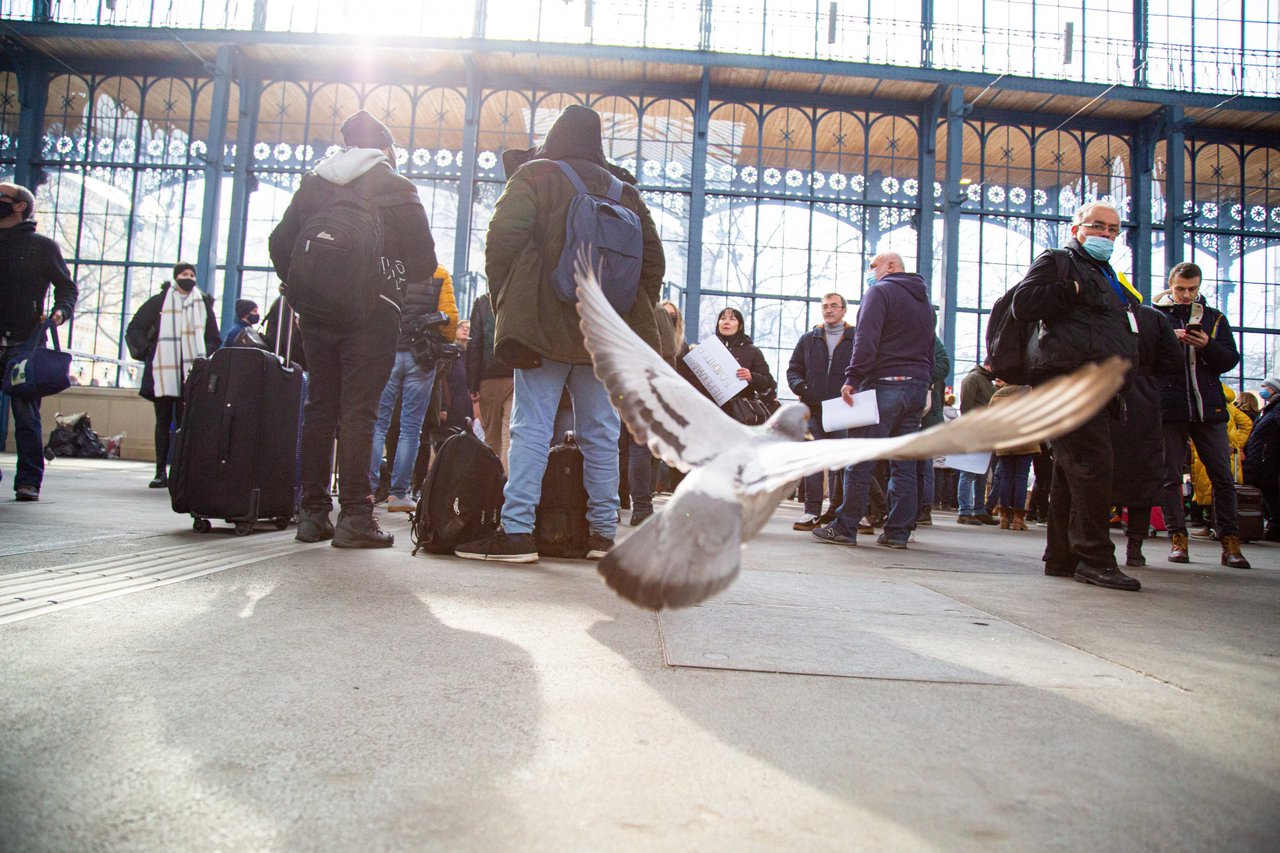The Nyugati (Western) railway station was swarming with press. Cameras everywhere, a foreign correspondent not far away from me talking into his microphone – pacing, sensing the tension around him. The police are lined up on the platform, not letting the media through so that their cameras, their presence, does not disturbing the disembarking passengers.
At the tables of the Reformed Charity Service, there is a lot of preparation, and a lot of rotation. Three familiar faces in the waiting crowd, Reformed brothers and sisters from Transcarpathia. We are happy to see each other. They crossed the border on the day of martial law was instituted, and then came the text message from Transcarpathia, asking if they could help with their language skills. They did not hesitate. For long hours they have been waiting for the refugees, translating, providing information for the Ukrainian-speaking passengers as they land. The testimony of one of them in an interview strengthens me:
Jesus told you beforehand that when you hear of wars and rumours of wars, do not be frightened: it must happen. I have made myself aware of this: it must happen. We have had much worse, world wars, but there is nothing new under the sun. There will always be wars. A believer must adapt to that, and not be frightened. We are left with faith and prayer. To ask God to help us through the situation, to strengthen our faith so that we can endure to the end.
These are the thoughts I take with me.

Refugees at the railway station
A SAD LITTLE HEAD
We receive the news that a warm bus for refugees is waiting next to the train station. There’s a sad little head at the back of the bus: :( You can see families sleeping in the window. My colleague doesn't have the heart to turn on the camera because of the moving scene.
I’m struck by the word "refugee" (I wonder at how foreign this status is to me, but it's true!) and engage the bus driver in conversation. He asks me the most topical question of my day: "Do you have somewhere to stay?" "Yes, with friends," I say. In the bus there are women and children sleeping under blankets; I don't see many men. I step up to a family playing with children. It turns out that the two mothers are sisters who couldn't bring their husbands.
On the way out, the driver asks for language assistance. If I understood the Ukrainian lady correctly, they want to offer the bus driver fruit, he of course smiles and refuses.
Walking through the Keleti (Eastern) station, waiting for the next train full of refugees, I look into the waiting room: women with children, all well dressed. It turns out that they don't speak Hungarian, either. I sit down among them, with a homeless man next to me. The smell is wafting around him. I think, “I'm glad I didn't end up like this. Facing me is a mother caressing her three little ones in her lap, looking into the distance with bitterness, sadness and emptiness in her eyes.
Back to Nyugati station. 18:45. A large Hungarian family from Transcarpathia hurries through the crowd. The mother in the front, followed by the three children of primary school age, the father and the landlord close the single line. They are too tired to give interviews. It is obvious that they would like a safe place to unpack and eat. It turns out that they are from Transcarpathia, around Uzhhorod.
I'll go to another family. I offer them an interview in Ukrainian, and the woman I’ve asked turns it down with surprising kindness, saying "they haven't slept or eaten for several days, they are very tired, I'm sorry, but we can't give me an interview".
I stand in the crowd. There are so many faces, all of them revealing the awareness that they have to keep going , leaving their husbands, homes and homeland behind.
I'm going "home", to someone else's home. My real home is on the other side of border, too!
The author is a Hungarian radio journalist from Transcarpathia who has found refuge in Budapest.